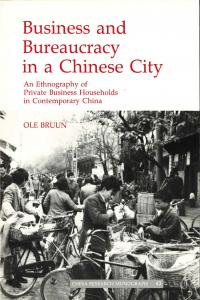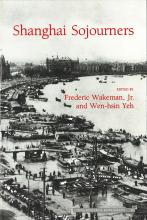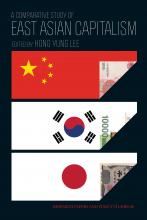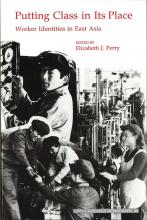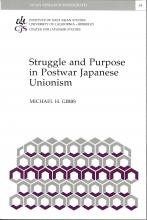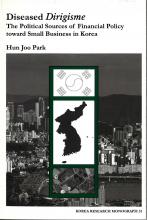Business and Bureaucracy in a Chinese City
Business and Bureaucracy in a Chinese City
Ole Bruun
This anthropological study follows the community of private business households (geti hu) in Chengdu, Sichuan, from 1987 to 1991. Bruun gives an account of the people, their private businesses, and their relationship with bureacracy in a small neighborhood within a contemporary Chinese urban area.
As a nonprofit academic press, we need your support to publish our books. Your gift can help us make more of our titles available as e-books. DONATE NOW
Title information
With China's Open Door Policy and economic reforms after 1978, private business was allowed to rise and become a vital social and economic factor. This anthropological study follows the community of private business households (geti hu) in Chengdu, Sichuan, from 1987 to 1991. Bruun gives an account of the people, their private businesses, and their relationship with bureacracy in a small neighborhood within a contemporary Chinese urban area. He looks at the effect of fundamental Chinese values and ideologies on business and bureaucracy.
Ole Bruun
Ole Bruun is professor of society and globalization at Roskilde University. At the time of this book's publication, he was a researcher at the Nordic Institute of Asian Studies, Denmark.
Ph.D. University of Copenhagen
Business and Bureaucracy in a Chinese City
Acknowledgements – vii
Maps – x
1. Methodology and Fieldwork – 1
2. Chang Shun Street and Market Area – 17
3. Enterprising Households – 37
4. The Cultural Economics of Labor – 73
5. The Continuity of Bureaucratic Power – 109
6. The Young in Business – 143
7. A New Cycle of Business – 175
8. The Dialectics of Household Strategies – 203
9. Conclusion – 237
Notes – 243
References – 265
|
JOURNAL REVIEWS |
|
"The experiences that link China's still-limited private markets and the very different political-economic processes of state production and distribution increasingly frame our studies of China. Ole Bruun, arguing from his splendid body of field materials, makes this dialectic more vivid, more concrete, and more clearly understood than any other previous attempt to unravel its complexities." ~Hill Gates, Stanford University, in The China Journal (http://www.jstor.org/stable/2950167) |
|
"Ole Bruun's work on the proliferation of private business in Chengdu is one of the most detailed and focused discussions to date of this relatively recent Chinese economic phenomenon. His account, based on research spread over a five-year period, is a fascinating and often entertaining story of entrepreneurs struggling against social and political odds to sometimes achieve impressive economic success." ~Eric Harwit, University of Hawai'i, in China Review International (http://www.jstor.org/stable/23729172) |
|
"Bruun's book convincingly shows how individual pursuit of market-based livelihood does not necessarily create exchanges that enhance societal autonomy: private business can also reaffirm bureaucratic authority locally." ~David L. Wank, Sophia University, in The Journal of Asian Studies (http://www.jstor.org/stable/2059255) |
|
"THIS in-depth, nuanced study of the private business people of a dis- trict of Chengdu city, Sichuan province, is proof that urban social-science fieldwork in western China studies has come of age....Bruun writes in a fluid, easy-to-read style that puts to shame most native writers of English. He alternates deftly between anecdotal descrip- tion and analysis, in a manner that moves the narrative along briskly. Anyone with an interest in contemporary Chinese society will take plea- sure in this book." ~Jonathan Unger, Australian National University, in Pacific Affairs (http://www.jstor.org/stable/2759581) |

